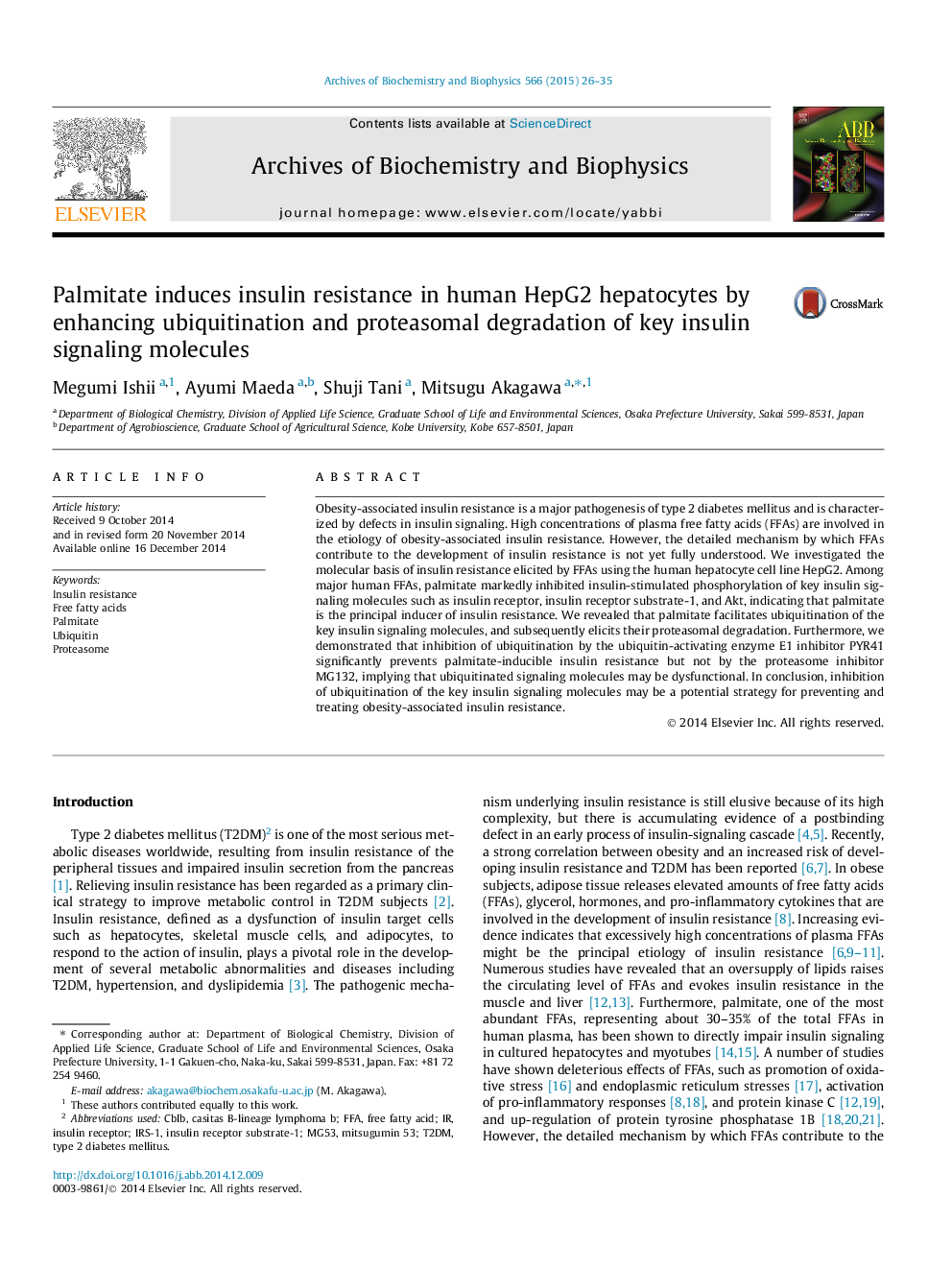| کد مقاله | کد نشریه | سال انتشار | مقاله انگلیسی | نسخه تمام متن |
|---|---|---|---|---|
| 1925039 | 1536336 | 2015 | 10 صفحه PDF | دانلود رایگان |

• We examined the mechanism of insulin resistance elicited by free fatty acids.
• Palmitate markedly inhibits insulin signaling in human HepG2 hepatocytes.
• Palmitate induces ubiquitination and proteasomal degradation of IR, IRS-1, and Akt.
• Ubiquitin E1 inhibitor significantly mitigates palmitate-induced insulin resistance.
Obesity-associated insulin resistance is a major pathogenesis of type 2 diabetes mellitus and is characterized by defects in insulin signaling. High concentrations of plasma free fatty acids (FFAs) are involved in the etiology of obesity-associated insulin resistance. However, the detailed mechanism by which FFAs contribute to the development of insulin resistance is not yet fully understood. We investigated the molecular basis of insulin resistance elicited by FFAs using the human hepatocyte cell line HepG2. Among major human FFAs, palmitate markedly inhibited insulin-stimulated phosphorylation of key insulin signaling molecules such as insulin receptor, insulin receptor substrate-1, and Akt, indicating that palmitate is the principal inducer of insulin resistance. We revealed that palmitate facilitates ubiquitination of the key insulin signaling molecules, and subsequently elicits their proteasomal degradation. Furthermore, we demonstrated that inhibition of ubiquitination by the ubiquitin-activating enzyme E1 inhibitor PYR41 significantly prevents palmitate-inducible insulin resistance but not by the proteasome inhibitor MG132, implying that ubiquitinated signaling molecules may be dysfunctional. In conclusion, inhibition of ubiquitination of the key insulin signaling molecules may be a potential strategy for preventing and treating obesity-associated insulin resistance.
Journal: Archives of Biochemistry and Biophysics - Volume 566, 15 January 2015, Pages 26–35